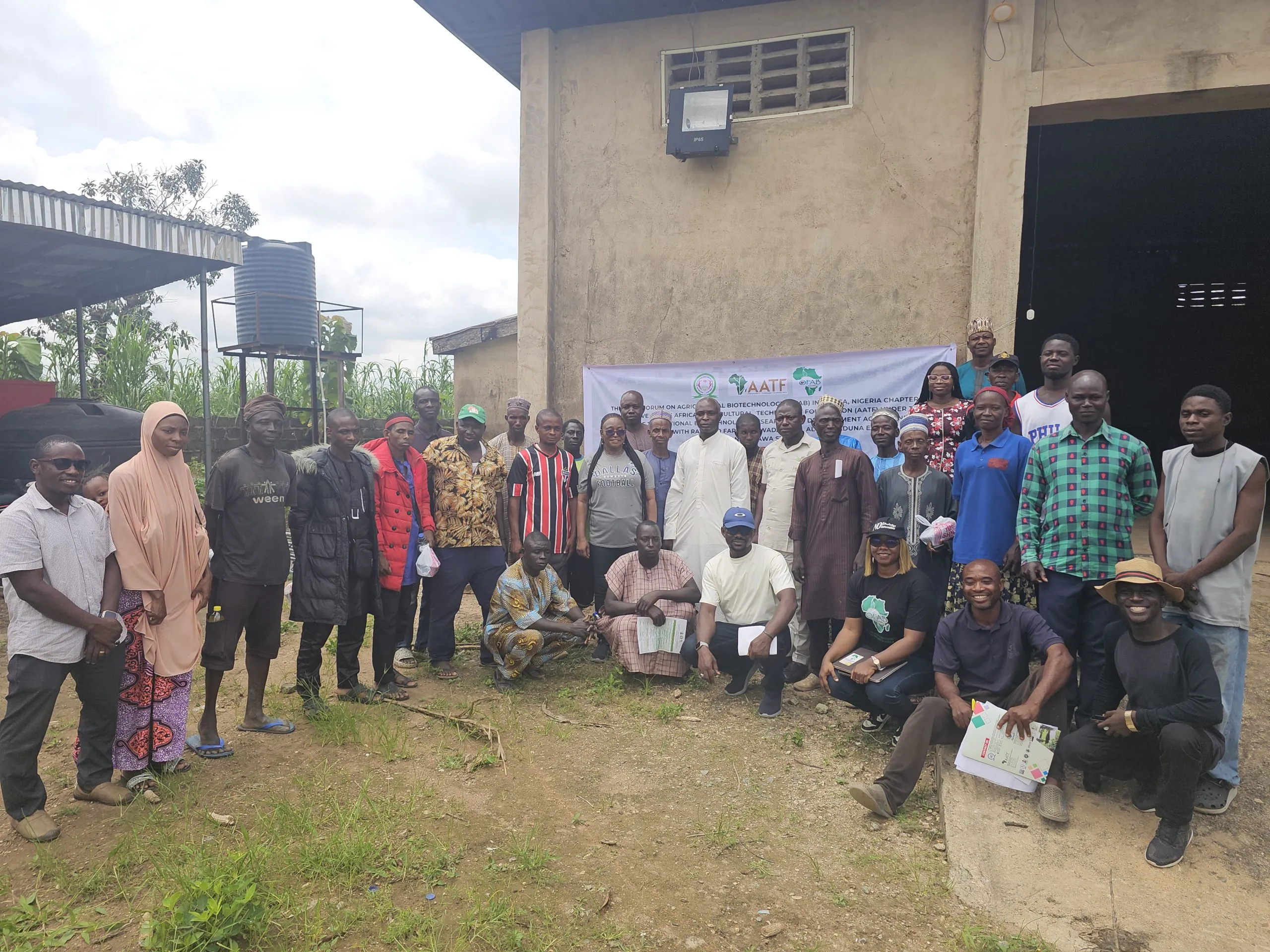By Collins Nnabuife
Copyright tribuneonlineng

The Director of Agricultural Biotechnology at the National Biotechnology Research and Development Agency (NBRDA), Dr. Rose Gidado, has called on Nigerian farmers to embrace biotechnology as a safe and effective means of increasing food production and enhancing national food security.
Speaking at a Sensitization Workshop on Biotechnology and Biosafety/Farmers Field Day held in Jagwada, Keffi, Nasarawa State, Dr. Gidado emphasized that biotechnology crops like BT Cowpea have proven their effectiveness and safety in both yield performance and environmental impact.
According to her, the workshop aimed to engage farmers who are yet to gain access to BT Cowpea seeds and to showcase the impressive results achieved by those already cultivating the variety.
“We came here to interact with farmers who have not yet had access to BT Cowpea seeds and to showcase what is already on the ground. Our farmer here, Emmanuel, has been cultivating this variety since 2023 and has become an outgrower for a seed company. He’s doing excellently well,” she said.
Dr. Gidado noted that the BT Cowpea variety, approved by the National Variety Release Committee in 2019, continues to perform effectively in the field, providing proof that the technology remains efficacious and resilient.
She explained that the genetically modified (GM) variety, developed to resist the destructive Maruca pod borer, has significantly reduced farmers’ dependence on chemical pesticides.
“The technology is working. This variety matures early, is climate-smart, and reduces pesticide use to a minimum. That means fewer harmful residues in the grains,” she said, adding that one of the farmers even exports his BT Cowpea to the United Kingdom, where it has passed all quality checks without rejection.
Dr. Gidado, who has been a leading voice for agricultural biotechnology in Nigeria, urged farmers not to be misled by misinformation or fearmongering about genetically modified organisms (GMOs).
“Nigerian farmers, please don’t run away from this technology. Don’t listen to rumor mongers. GMOs are very safe. People claim GMOs destroy the environment, but look at this farm, it’s full of life. You can see weeds, groundnuts, sorghum, insects, even ants. Everything is thriving,” she assured.
She described BT Cowpea as a “testimony of success” for Nigerian science and innovation, noting that the NBRDA, in collaboration with the African Agricultural Technology Foundation (AATF), has been part of the communication and outreach component of the project from inception.
“We are proud to be part of this success story. We are contributing to Nigeria’s food security and giving farmers access to quality, climate-resilient seeds,” she added.
One of the host farmers, Mr. Ogenomor Emmanuel, shared his remarkable experience cultivating BT Cowpea on his 7.7-hectare farm in Jagwada. He began with five hectares in 2023 and has since expanded due to the crop’s performance.
“The crop is doing exceptionally well. For conventional cowpea, you apply pesticides seven to eight times, but for BT Cowpea, just once every 15 days is enough,” he said.
Emmanuel noted that while the traditional cowpea yields only three to four bags per hectare, his BT Cowpea produces between 21 to 22 bags per hectare, marking a dramatic increase in productivity.
“If you do the mathematics, you’ll understand how much difference that makes. The BT Cowpea has changed my finances completely,” he explained.
He also highlighted a unique advantage of the improved variety — faster cooking time.
“When cooked, it takes about 35 to 40 minutes to get done, unlike the local variety that takes up to three hours,” he said.
Since October 2024, Emmanuel has been exporting BT Cowpea to buyers in the UK and the US, earning double what he would normally make in local markets. He attributed the high demand to the grain’s purity and cleanliness, even during the rainy season when most beans are prone to spoilage.
“Some farmers said it’s impossible to have clean beans during the rainy season, but with proper farming techniques, it is possible. The BT Cowpea can even be planted two to three times yearly — that’s how resilient it is,” Emmanuel said.
ALSO READ:Alake moves to make Africa global mineral hub
In his first year, he harvested 7.6 tons from five hectares, describing the experience as life-changing.
Another participant, Master Balat Ishaya, a farmer from Kaduna State, described the workshop as an eye-opener that could revolutionize agricultural productivity across Nigeria if scaled up.
“This workshop is an eye opener. If such programs reach more villagers, it will replace the primitive way of farming. It will enhance productivity, and more productivity means development,” he said.
Balat added that agricultural biotechnology should be promoted nationwide to help Nigeria achieve food sufficiency and economic growth.
“When you have enough food to feed your people, it shows that the nation is growing,” he said.
The NBRDA Sensitization Workshop forms part of ongoing national efforts to promote the safe adoption of biotechnology and biosafety practices, aimed at transforming agriculture through innovation, improving farmers’ livelihoods, and strengthening Nigeria’s food system.
NIGERIA TRIBUNE